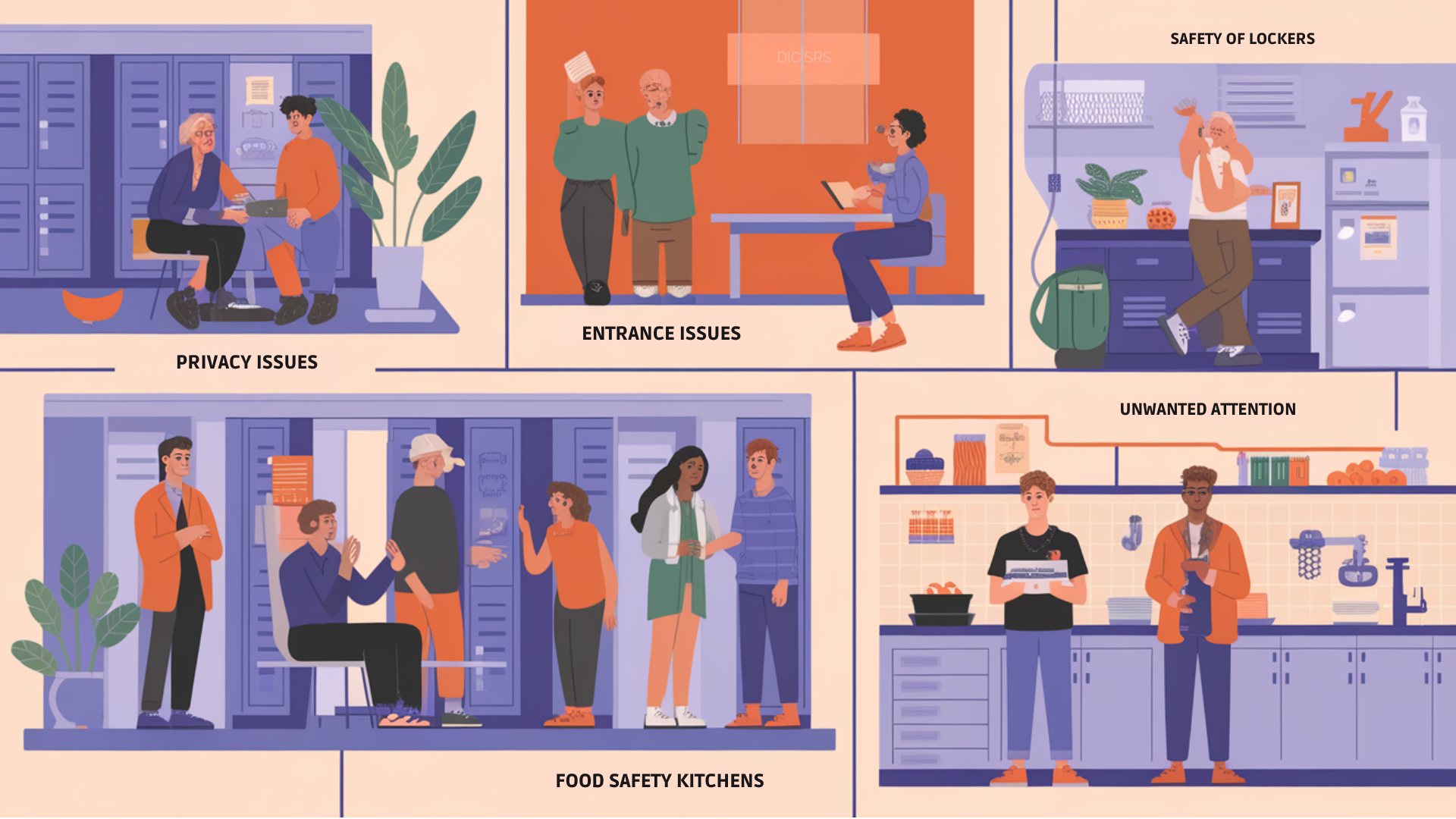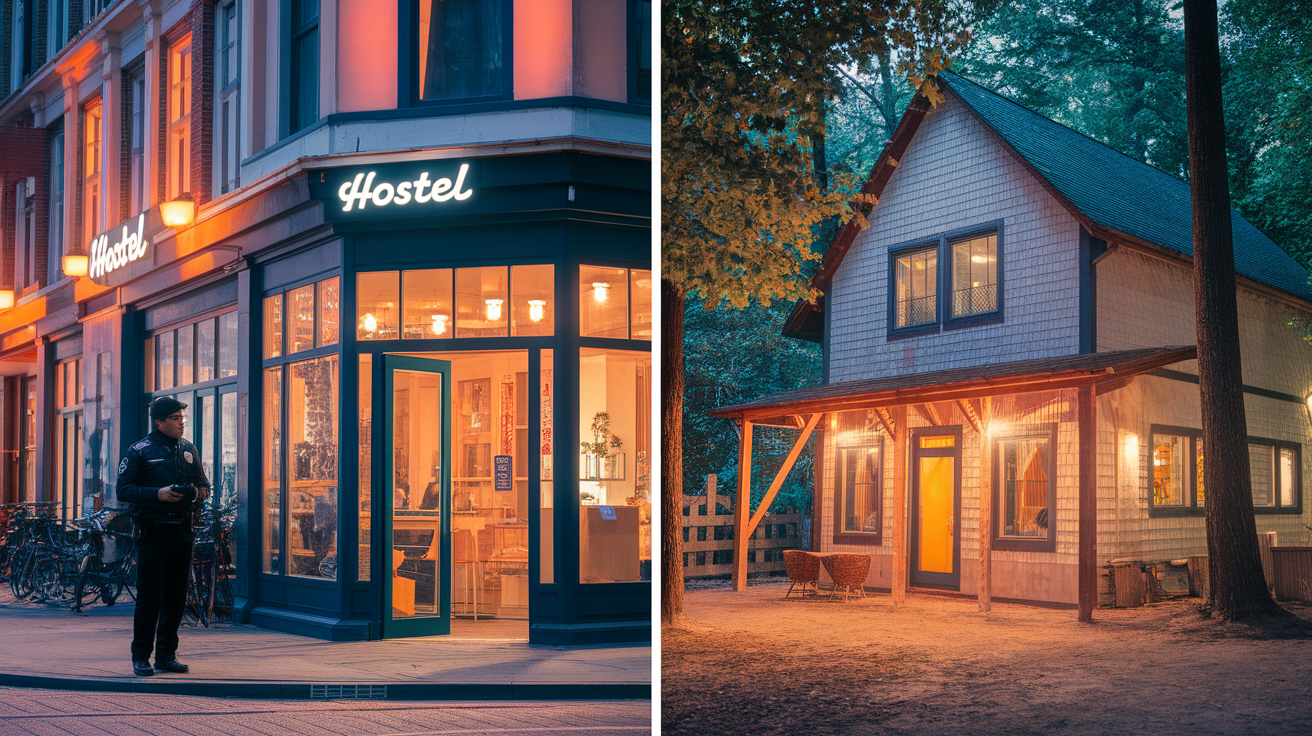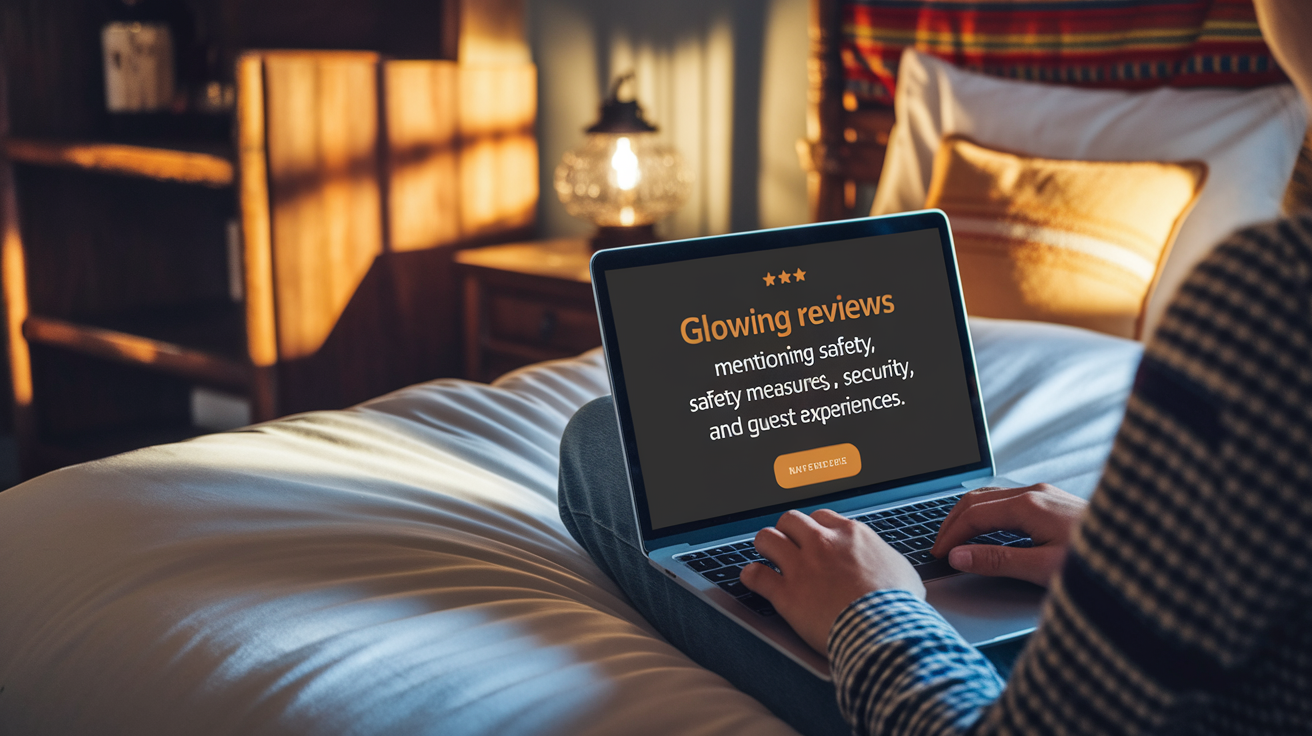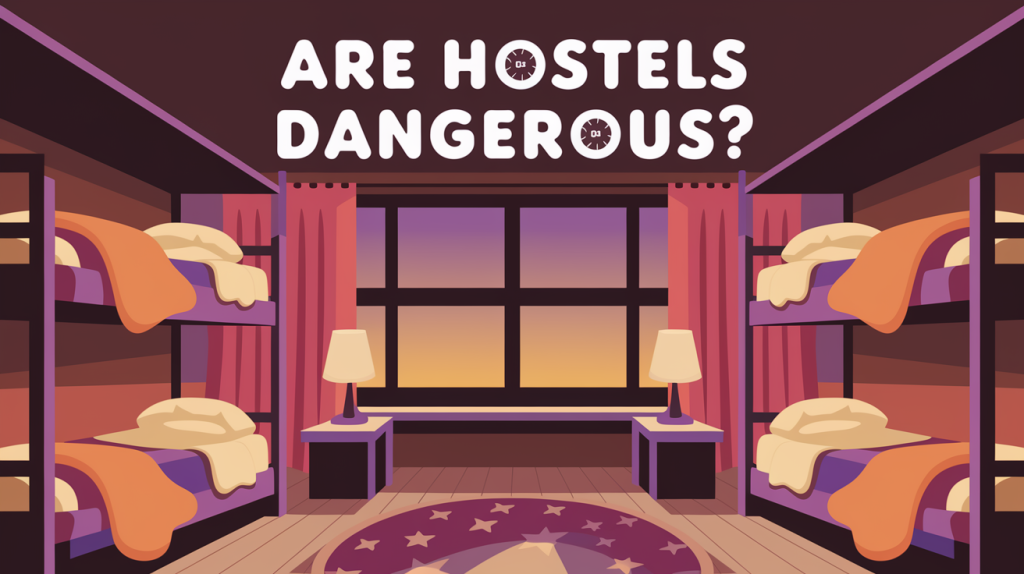Are you worried about staying in hostels during your travels? You’re not alone. Many first-time travelers hesitate to book hostels due to concerns about safety, theft, and personal security.
However, these budget-friendly accommodations have evolved significantly, offering secure and enjoyable experiences for solo daredevils, groups, and even families.
In this guide, we’ll debunk common myths about hostel safety, investigate what really makes hostels different from hotels, and provide evidence-based safety tips from experienced travelers.
If you’re planning your first backpacking trip or looking to stretch your travel budget further, understanding hostel safety measures can help you enjoy the unique social benefits of hostel stays without compromising your security or peace of mind.
General Safety of Hostels
Hostels generally maintain good safety standards while offering a unique travel experience: most feature secure entry systems, lockers for valuables, and 24-hour reception desks.
Staff typically monitor common areas and enforce quiet hours. While shared accommodations require awareness, simple precautions like using locks, securing valuables, and maintaining situational awareness ensure a safe stay.
Women-only dorms and private room options provide additional comfort for solo travelers. Reading recent reviews can help identify properties with strong safety records.
What Makes Hostels Different from Hotels?
Hostels offer budget-friendly accommodations that won’t drain your travel fund, often costing just a fraction of hotel prices.
Unlike hotels’ private rooms, hostels feature shared dormitories and communal spaces, from kitchens to lounges, creating natural opportunities to meet fellow travelers.
This social atmosphere is perfect if you’re seeking authentic connections rather than isolated luxury.
Are Hostels Safe for Travelers?
Hostels are generally very safe for travelers, with incidents of theft or personal safety issues occurring at similar or lower rates than budget hotels.
Experienced travelers frequently cite hostels’ community atmosphere as a safety benefit. The communal environment means someone’s always around: there’s safety in numbers. Staff typically know everyone staying there, making it harder for outsiders with bad intentions to blend in unnoticed.
Common Safety Concerns in Hostels

Despite their many advantages, hostels do present some legitimate safety considerations for travelers. Understanding these common concerns can help you prepare appropriately and select accommodations that prioritize guest security.
- Theft of Personal Belongings: Implement a secure storage solution with individual lockers. Consider a sign-in system for visitors, install security cameras in common areas (not private spaces), and encourage guests to report suspicious behavior immediately.
- Privacy Issues in Dormitories: Create clear boundaries with privacy screens or curtains. Establish quiet hours and private changing areas. Designate specific cleaning times to ensure guests know when staff may enter.
- Security of Entrance/Exit Points: Install automated locks requiring key cards for entry. Maintain 24-hour reception or security staff. Ensure all emergency exits are functional but alarmed when opened.
- Unwanted Attention or Harassment: Establish and clearly communicate a zero-tolerance policy. Provide multiple reporting channels for incidents, train staff to respond appropriately to complaints, and intervene when necessary.
- Food Safety in Shared Kitchens: Label and date all food items. Implement regular cleaning schedules with clear responsibilities. Post food safety guidelines prominently and provide proper storage containers.
Factors that Affect Hostel Safety

Location significantly impacts hostel safety, with establishments in well-lit, busy areas generally being more secure. Management quality determines security measures like 24-hour reception, functioning locks, and regular maintenance.
Hostel size matters: smaller venues offer better guest monitoring but fewer staff, while larger ones provide more security personnel but less personal oversight.
Guest demographics influence atmosphere, with party hostels presenting different safety challenges than family-friendly options.
Online reputation serves as a reliable indicator, with consistently negative safety reviews warranting caution. Price point often correlates with security investment; extremely cheap options may compromise on essential safety features.
Hostel Reviews and Reputation

Reviews provide crucial safety insights from real travelers’ experiences. Look for consistent mentions of security measures, staff responsiveness, and neighborhood safety. Filter recent reviews first, as conditions can change rapidly.
Watch for red flags such as mentions of broken locks, frequent staff absences, unauthorized room entries, or consistent theft reports. Multiple comments about uncomfortable encounters, poor lighting in hallways, or easy access for non-guests should prompt caution.
One-off complaints might be anomalies, but patterns of security concerns across multiple reviews indicate genuine problems worth avoiding.
Pros and Cons About Hostels
Hostels offer budget-friendly accommodations, which are popular among travelers seeking both affordability and social connections. They provide a unique travel experience with distinct advantages and drawbacks.
| PROS | CONS |
|---|---|
| Significantly cheaper than hotels | Shared rooms with limited privacy |
| Easy to meet other travelers from around the world | Noise from other guests can disrupt sleep |
| Staff provide local tips and recommendations | Less security for personal belongings |
| Access to communal kitchens to save on food costs | Shared bathroom facilities |
| Often located in central, convenient locations | Variable cleanliness standards |
| Organized social activities like pub crawls and tours | Limited personal space |
| Flexible booking policies | Some have curfews or lock-out periods |
| Cultural exchange with international travelers | Basic accommodations with minimal amenities |
Weighing these factors will help you decide if hostels align with your travel priorities, whether you value budget-friendly social experiences or prefer more private, comfortable accommodations.
Common Myths About Hostel Safety
Many travelers hold misconceptions about hostel safety that can either prevent them from experiencing this budget-friendly accommodation option or lead them to take unnecessary risks. Here are some of the most prevalent myths versus reality:
Myth: Hostels are inherently dangerous.
Reality: Most established hostels prioritize guest safety with security measures like key card access, lockers, 24-hour reception, and security cameras. The communal nature often creates a self-policing environment where guests look out for one another.
Myth: Your belongings will get stolen.
Reality: While theft can happen anywhere, most hostels provide secure lockers specifically to protect valuables. Using these facilities and taking basic precautions (like not leaving expensive items unattended) significantly reduce risk.
Myth: Hostels are only for young backpackers.
Reality: Modern hostels cater to diverse travelers of all ages, with many offering private rooms and family-friendly options with enhanced security features for those seeking more privacy.
Myth: Mixed dorms are unsafe for solo female travelers.
Reality: Many hostels now offer female-only dorms specifically designed to address this concern. Additionally, reading reviews from other female travelers can help identify hostels with positive safety records.
Myth: Cheaper hostels are less safe.
Reality: Price isn’t always indicative of safety. Many budget-friendly hostels maintain excellent security standards. What matters more is reading recent reviews, checking their security policies, and researching their neighborhood.
Understanding these myths can help travelers make informed decisions about hostel accommodations while maintaining appropriate safety awareness during their journeys.
Conclusion
Hostels represent one of travel’s best-kept secrets: affordable accommodation that often provides more authentic experiences than luxury hotels.
As we’ve analyzed, most safety concerns stem from misconceptions rather than reality. With proper precautions, such as using lockers, bringing quality locks, researching locations, reading recent reviews, and maintaining situational awareness, hostels offer secure environments for travelers of all types.
The communal atmosphere actually enhances safety through strength in numbers, while modern security features like key-card access and 24-hour reception provide additional protection.
Whether you’re traveling solo, concerned about theft, or unsure about shared spaces, the benefits of hostels’ budget-friendly prices, social connections, local insights, and central locations far outweigh the manageable risks.
By following the practical advice in this guide, you can confidently enjoy the unique community and cultural exchange that only hostels provide.



